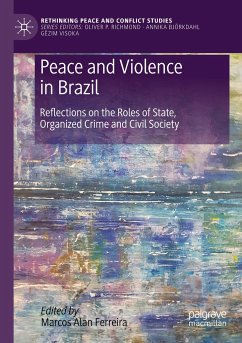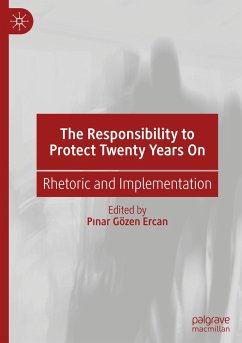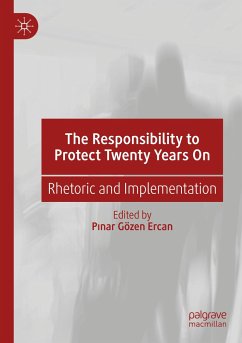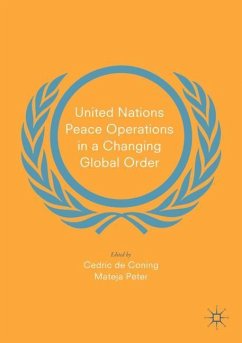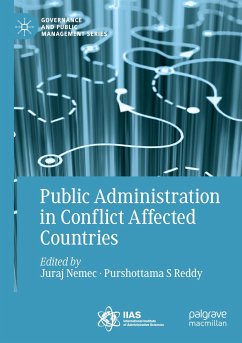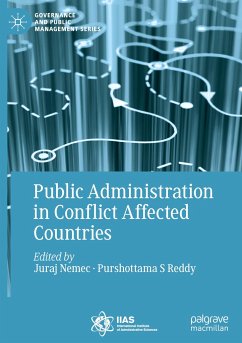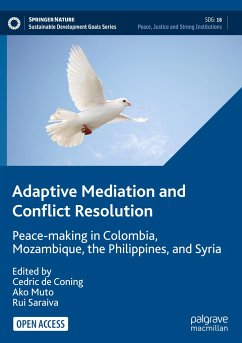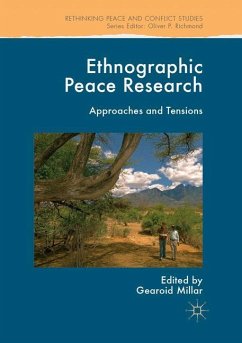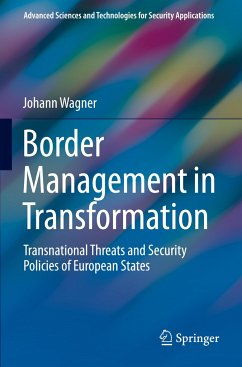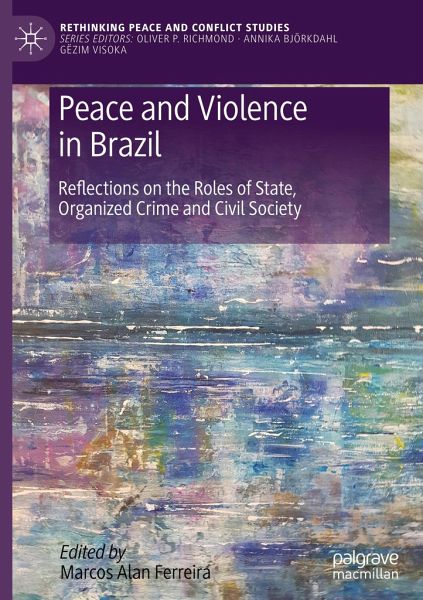
Peace and Violence in Brazil
Reflections on the Roles of State, Organized Crime and Civil Society
Herausgegeben: Ferreira, Marcos Alan

PAYBACK Punkte
46 °P sammeln!
This edited volume examines how the multiple manifestations of social violence in Brazil impacts the building of a peaceful society. The chapters reflect on the role of state, organized crime and civil society. They provide a unique analysis of how the Brazilian state deals with criminal violence, but also finds challenges to comply with Sustainable Development Goal 16, to interdict police violence, and to provide an efficient gun policy. The book shows the agency of civil society in a violent society, in which NGOs and communities engage in key peace formation action, including advocacy for h...
This edited volume examines how the multiple manifestations of social violence in Brazil impacts the building of a peaceful society. The chapters reflect on the role of state, organized crime and civil society. They provide a unique analysis of how the Brazilian state deals with criminal violence, but also finds challenges to comply with Sustainable Development Goal 16, to interdict police violence, and to provide an efficient gun policy. The book shows the agency of civil society in a violent society, in which NGOs and communities engage in key peace formation action, including advocacy for human rights and promoting arts. The overall aim of this book is to advance the research agenda regarding the intersections between peace, public security, and violence, under the lens of peace studies. In Brazil, the challenges to peace differ markedly from areas in regular conflict.



